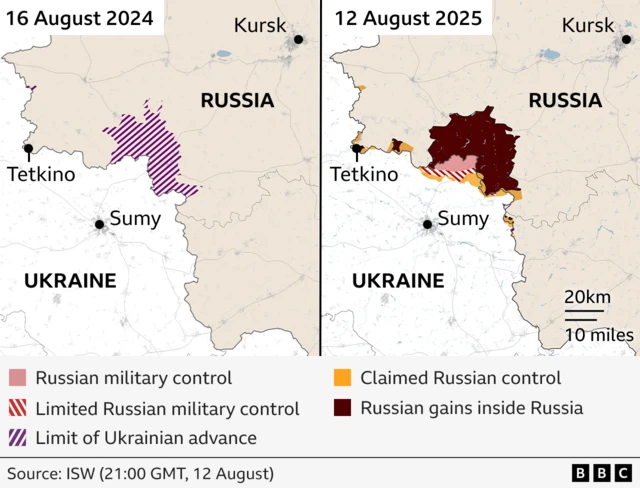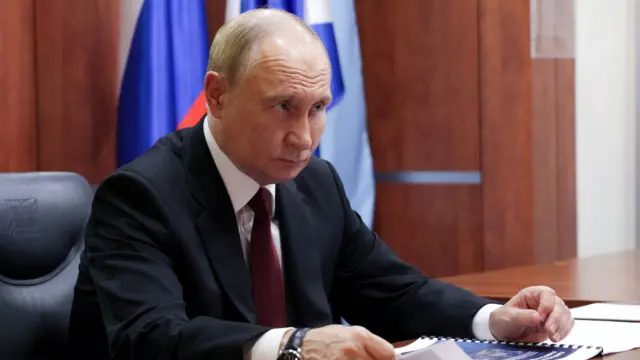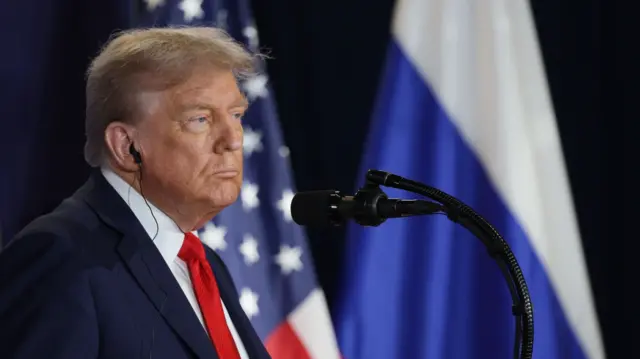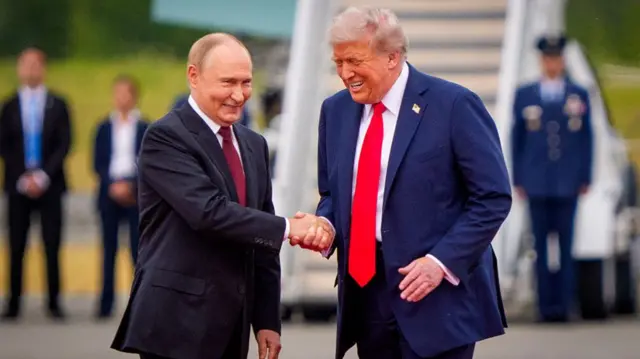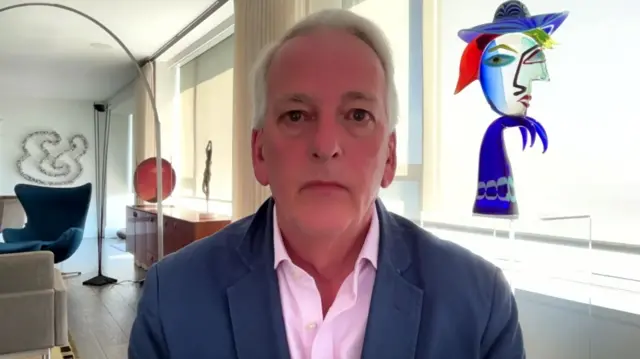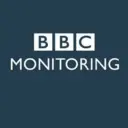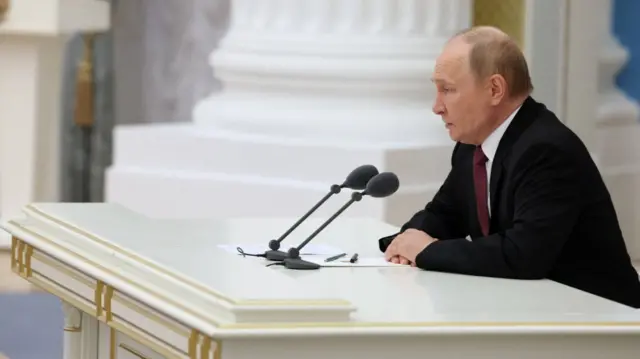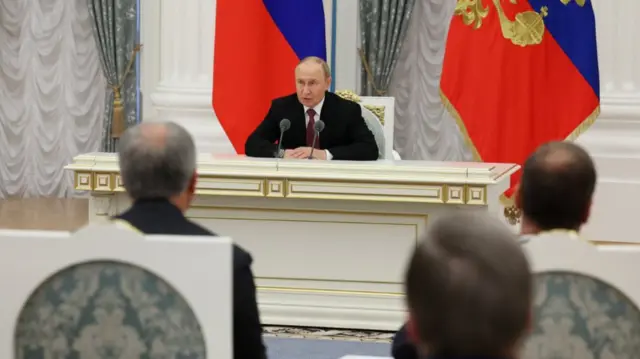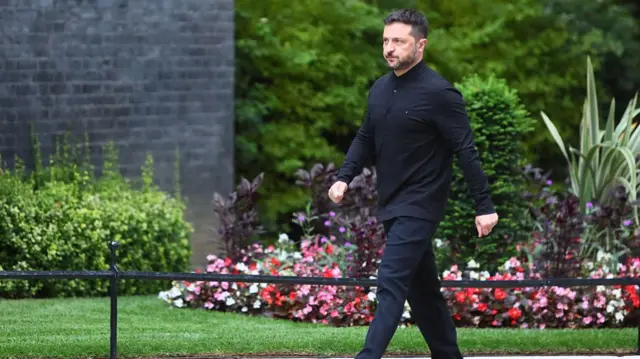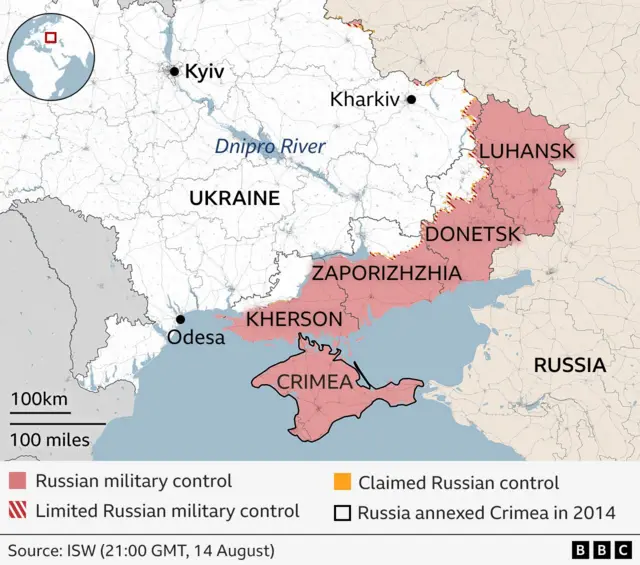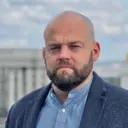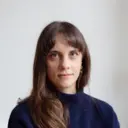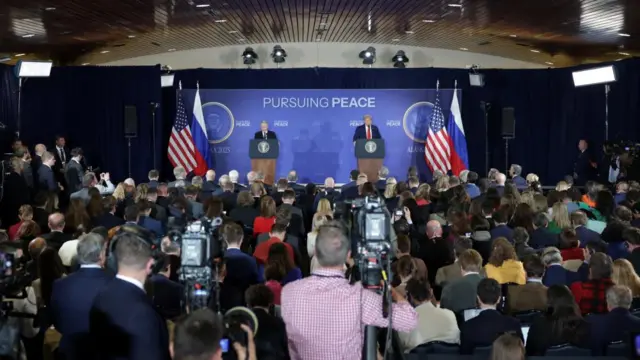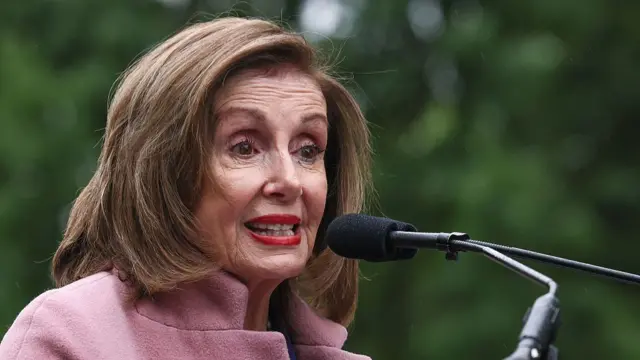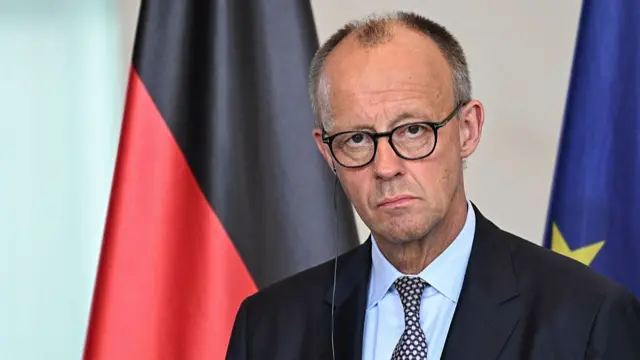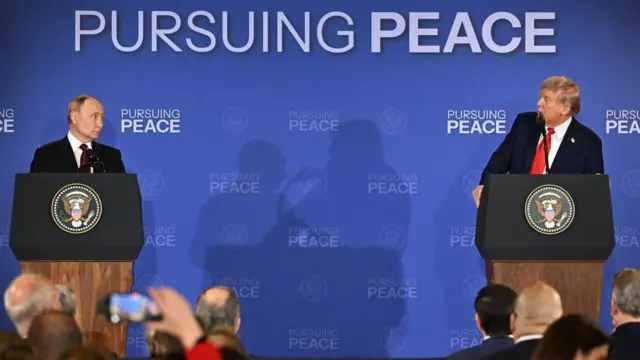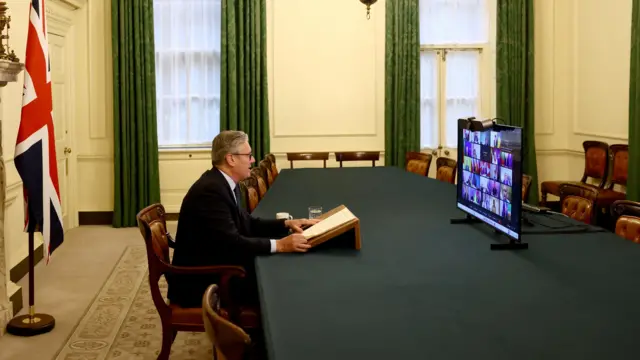Trump and Putin claim summit success - but what will they ask of Zelensky next?published at 20:37 BST 16 August
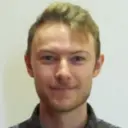 Adam Goldsmith
Adam Goldsmith
Live reporter
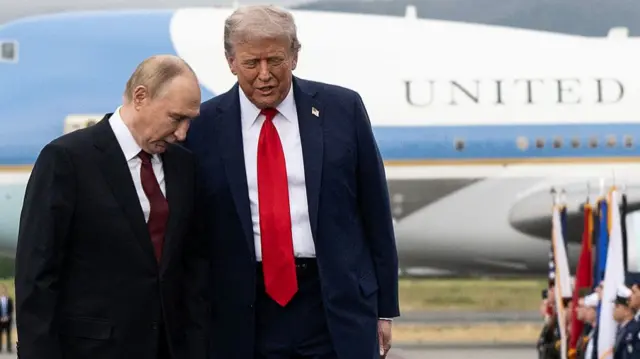 Image source, Getty Images
Image source, Getty ImagesThis time yesterday, Donald Trump was welcoming Vladimir Putin onto American soil, smiling and shaking hands with the Russian leader on the Alaskan tarmac, before the pair headed down a red carpet and into talks on "pursuing peace" in Ukraine.
In the end, no breakthrough was found on stopping the conflict, and our Russia editor in Anchorage says a shift in Trump's position into seeking lasting peace without an initial ceasefire will please Vladimir Putin.
In the 24 hours since their talks, both leaders have claimed success. Putin today said his meeting was "very useful" and honed in on the need to eliminate the "root causes" of what he termed "the Ukrainian crisis".
- Five takeaways after Trump and Putin's Alaska summit
- Putin's warm welcome gets cold reaction in Ukraine
Meanwhile, multiple news outlets reported that Putin had presented an offer that involved Ukraine handing over complete control of its eastern Donetsk region, which is 70% occupied by Russia, in exchange for the freezing of the front lines.
Trump also told European leaders that Putin was willing to make other concessions - although the president didn't specify what these might be, the BBC's US partner CBS reports.
Now, attention turns to the leader who was excluded from discussions. On Monday, Zelensky will be in the White House, where he will be hopeful for a warmer reception than February's Oval Office shouting match with the president and Vice-President JD Vance.
Beforehand, European leaders will once again convene under their "coalition of the willing" moniker tomorrow to discuss the path to peace.
That brings an end to our live coverage for now, but we'll keep our news story updated with any developments.

